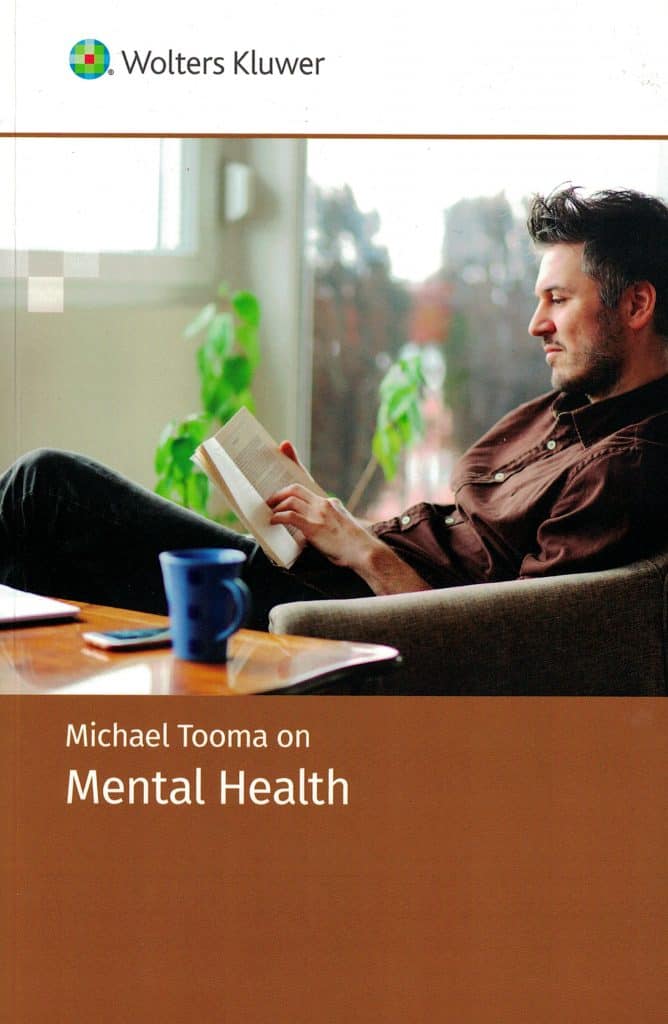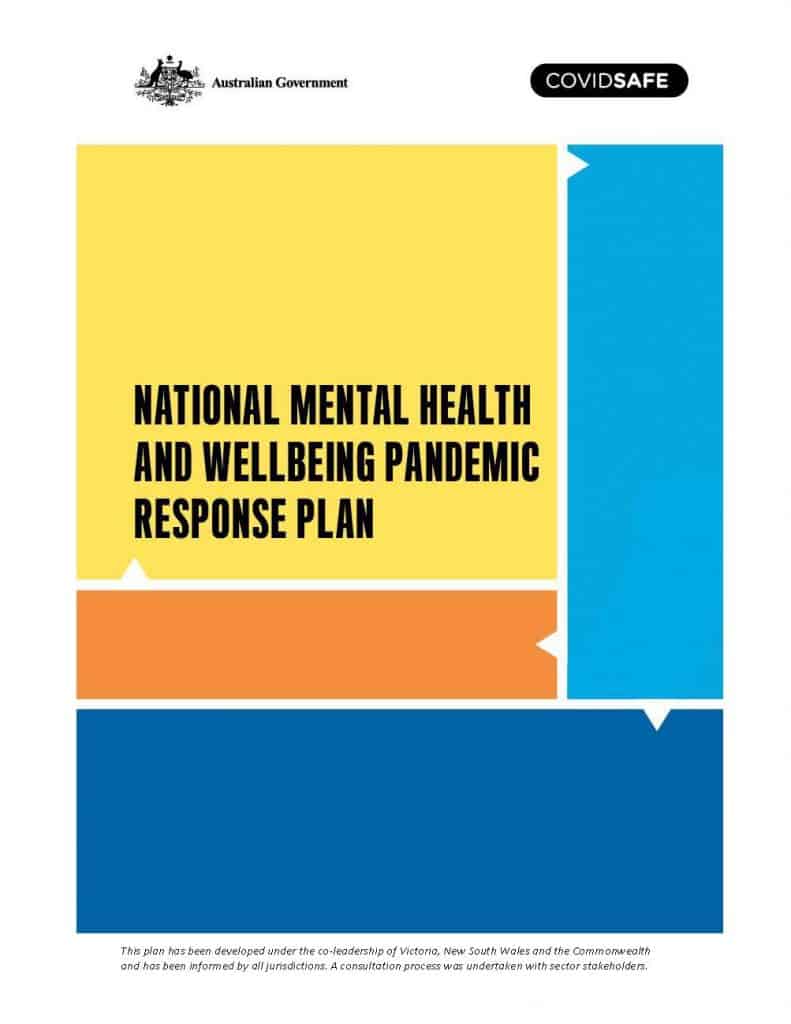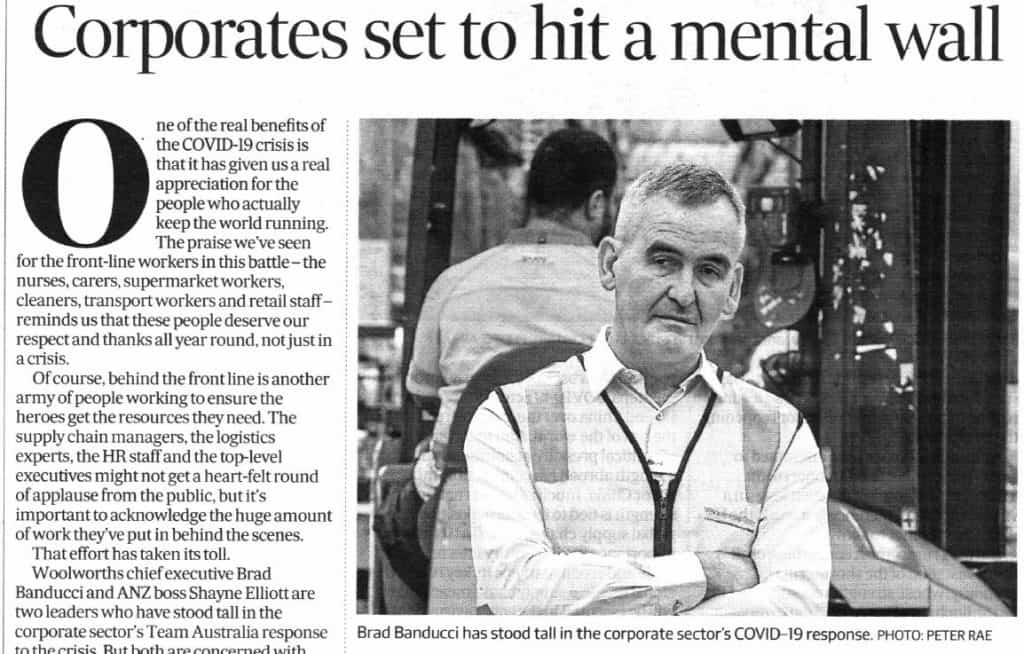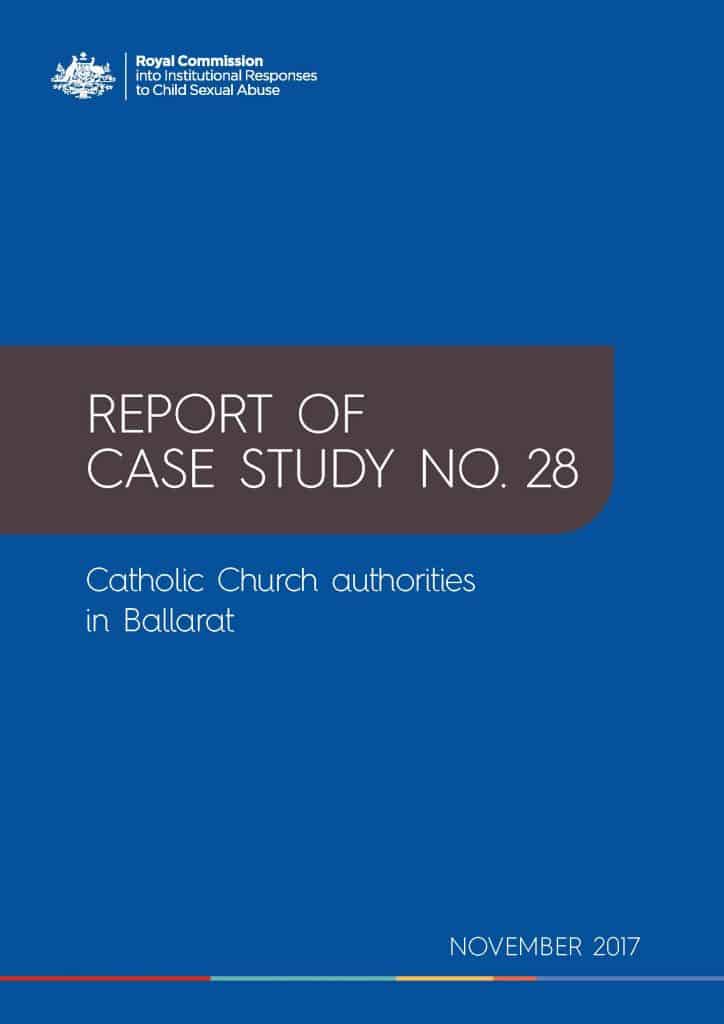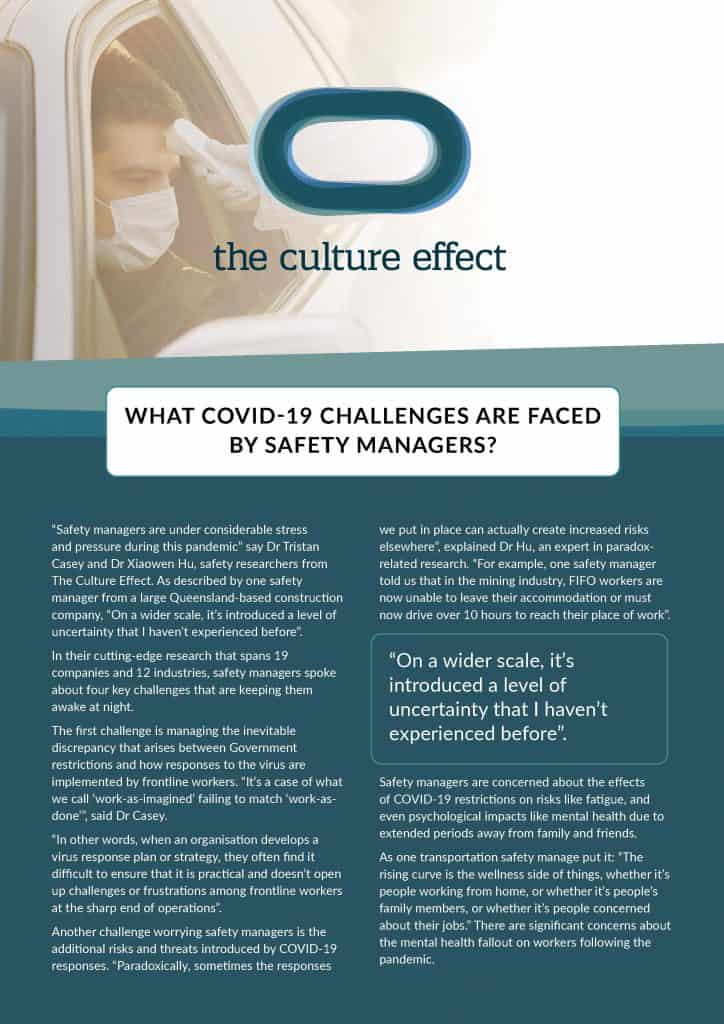
Several weeks ago, researchers from Griffith University and Queensland University of Technology (QUT) commenced a survey about safety managers and COVID19. The research was called “Resilience in a COVID19 World” and aimed at
“Exploring health and safety measures taken by and for ‘essential services’ workers throughout Australia’s COVID-19 crisis, and how their contributions affect personal and organisational resilience.”
Some initial results are in a recent outline published by Dr Tristan Casey & Dr Xiaowen Hu through The Culture Effect consultancy. There were four key challenges but also significant positives.

